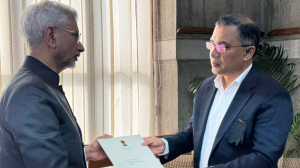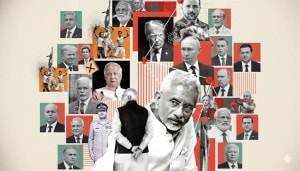Gun with the wind
It was the emblematic case of political corruption. As if by deliberate design, it provided the raging climax to an ebbing of trust that had...

It was the emblematic case of political corruption. As if by deliberate design, it provided the raging climax to an ebbing of trust that had been with us awhile. There was mounting popular cynicism about the political class through the 8217;80s, more specifically about the dominant Congress party, which Rajiv Gandhi8217;s massive mandate in 1984 had only served to temporarily obscure. When it first broke out in the late 8217;80s, therefore, Bofors was a defining moment, but one that also carried a promise. All the culprits would be identified, they would meet with justice and the people would learn to give the politician the benefit of doubt again. Now, almost 20 years later, as the case climbs into the headlines once more, it has entirely cast off that burden of hope. There is weary irony as the law ministry and its ostensible handmaiden, the CBI, are seen to be openly at loggerheads over the defreezing of the overseas accounts of a controversial Italian businessman, surely the last of the prominent accused to survive the tortuous legal process in the case.
The UPA government must explain why its law officer acted in a way that suggests a blatant cover-up. Ottavio Quattrocchi8217;s well known association with the Gandhi family should have made it more scrupulous, in fact. That it still chose to conjure up a clean chit that-wasn8217;t from the CBI, all the better to let Mr Q, against whom extradition proceedings are still on, avail of his long frozen crores, speaks of a chilling cynicism. But while the government is answerable for its dubious conduct, of course, the never-ending Bofors case demands that we ask some other questions as well. They have to do with the country8217;s justice system.
How can a high-profile case that dragged in a prime minister, linger on, evade closure, for nearly two decades? Why has there been such inconsistent follow-through, with so few questions asked, on the leads unearthed from time to time, mostly by the investigative media? Why were governments, even non-Congress ones, non-serious about taking this case forward and why did a supposedly independent judicial process allow governments to get away with their deliberate inaction? Who is responsible for the several reputations sullied by the innuendo industry that sprang up around the case, meanwhile? The high-profile corruption case could have been the opportunity to renew faith in the system. It is, instead, the metaphor for a state in which the onus is ever on politics to prove its innocence.
- 01
- 02
- 03
- 04
- 05































